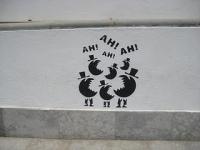 This paper explores Lisbon’s contemporary music scenes within the perspective of music and cultural circulation. It discusses the various ways in which music and cities interact, in a context of increased inter-connectedness between the local and the global. It suggests that music creation and performance (and more broadly, cultural innovation), cannot be reduced to neither grassroots nor institutional initiatives. On the premises of the existence of a so-called “global culture”, cities tend to reinvent themselves by promoting various (and eventually competing) self-definitions. In the case of Lisbon, this tendency is accompanied by a seemingly increased desire to connect (or re-connect) with the Lusophone world, eventually informing Lisbon’s self-images as an inclusive and multicultural city. In this process, new forms of ethnicity may gain visibility in the marketing of Luso-World music (or World music as practiced in the Portuguese-speaking countries). At the horizon of imagined cities as “transcultural megacities”, music tends to gain agency in the promotion of senses of place and belonging in, and to the city.
This paper explores Lisbon’s contemporary music scenes within the perspective of music and cultural circulation. It discusses the various ways in which music and cities interact, in a context of increased inter-connectedness between the local and the global. It suggests that music creation and performance (and more broadly, cultural innovation), cannot be reduced to neither grassroots nor institutional initiatives. On the premises of the existence of a so-called “global culture”, cities tend to reinvent themselves by promoting various (and eventually competing) self-definitions. In the case of Lisbon, this tendency is accompanied by a seemingly increased desire to connect (or re-connect) with the Lusophone world, eventually informing Lisbon’s self-images as an inclusive and multicultural city. In this process, new forms of ethnicity may gain visibility in the marketing of Luso-World music (or World music as practiced in the Portuguese-speaking countries). At the horizon of imagined cities as “transcultural megacities”, music tends to gain agency in the promotion of senses of place and belonging in, and to the city.
City
18.05.2011 | by Jorge de La Barre